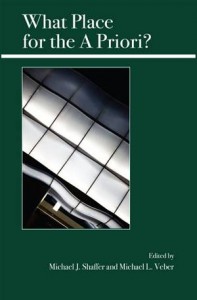This book deals with questions about the nature of a priori knowledge and its relation to empirical knowledge. Until the twentieth century, it was more or less taken for granted that there was such a thing as a priori knowledge, that is, knowledge whose source is in reason and reflection rather than sensory experience. With a few notable exceptions, philosophers believed that mathematics, logic and philosophy were all a priori. Although the seeds of doubt were planted earlier on, by the early twentieth century, philosophers were widely skeptical of the idea that there was any nontrivial existence of a priori knowledge. By the mid to late twentieth century, it became fashionable to doubt the existence of any kind of a priori knowledge at all. Since many think that philosophy is an a priori discipline if it is any kind of discipline at all, the questions about a priori knowledge are fundamental to our understanding of philosophy itself.
What place for the a priori?
Sobre
Talvez você seja redirecionado para outro site












